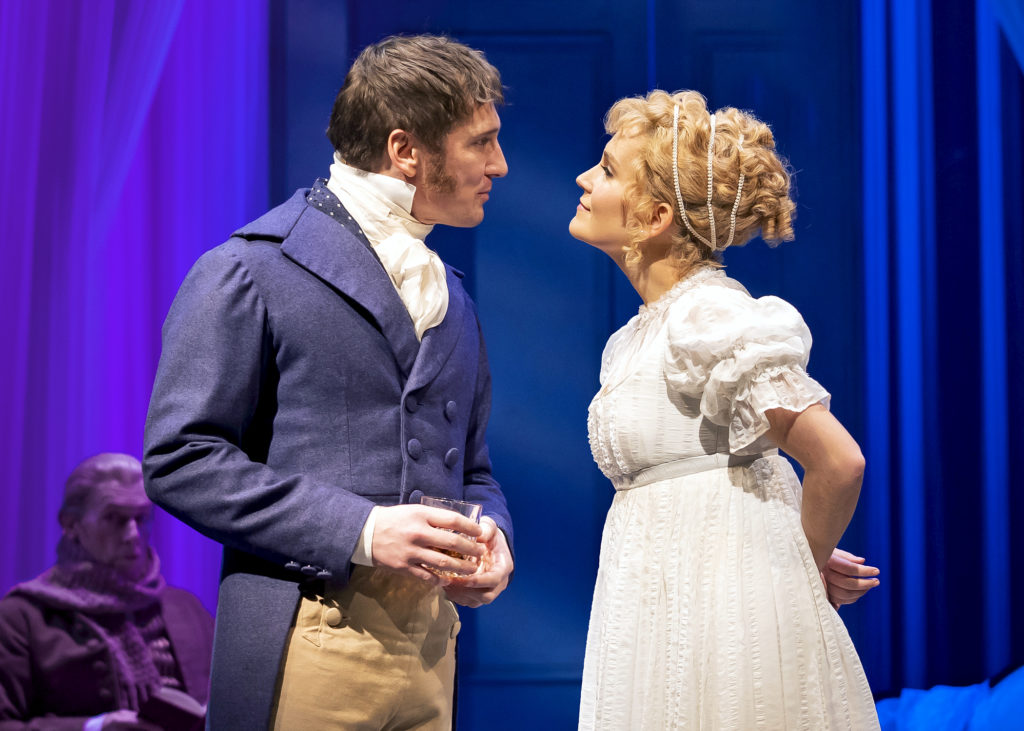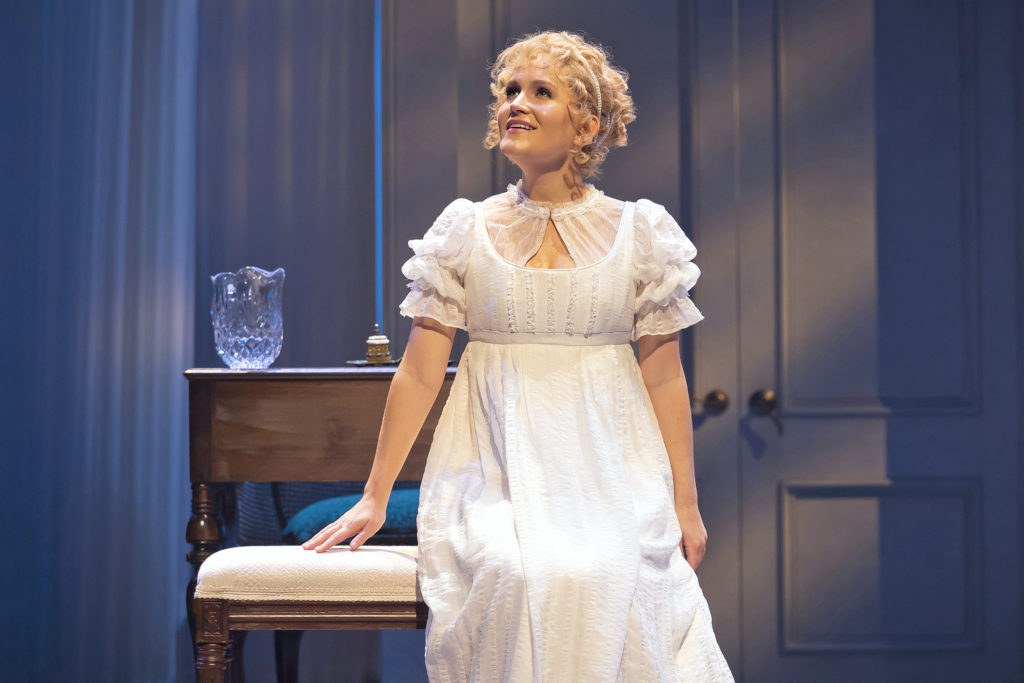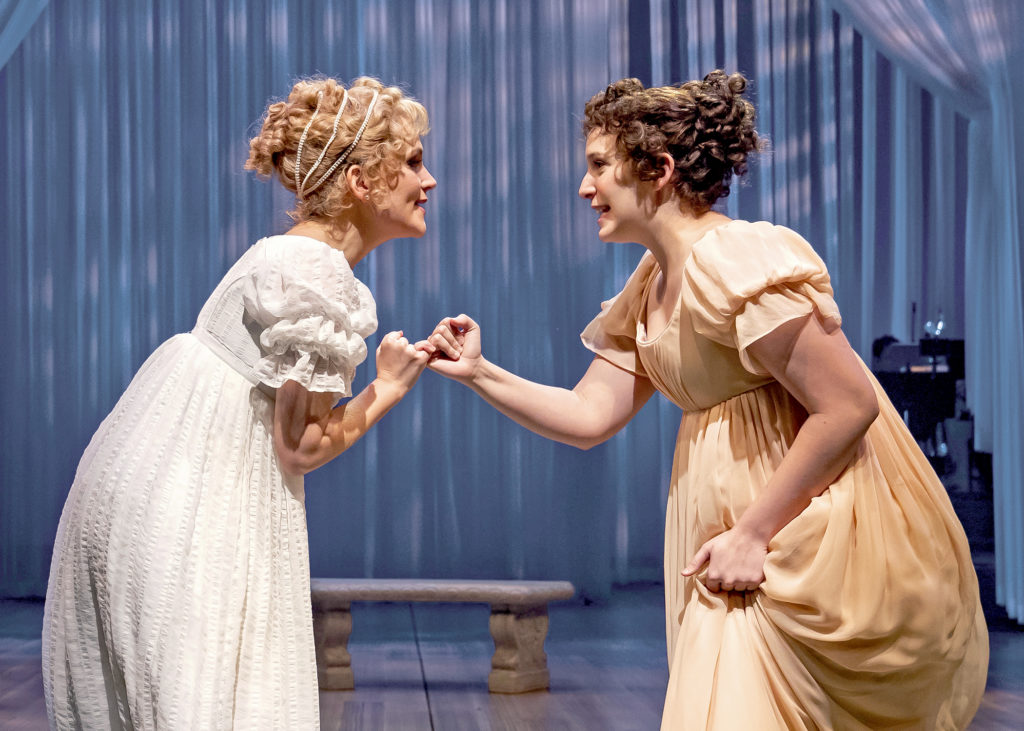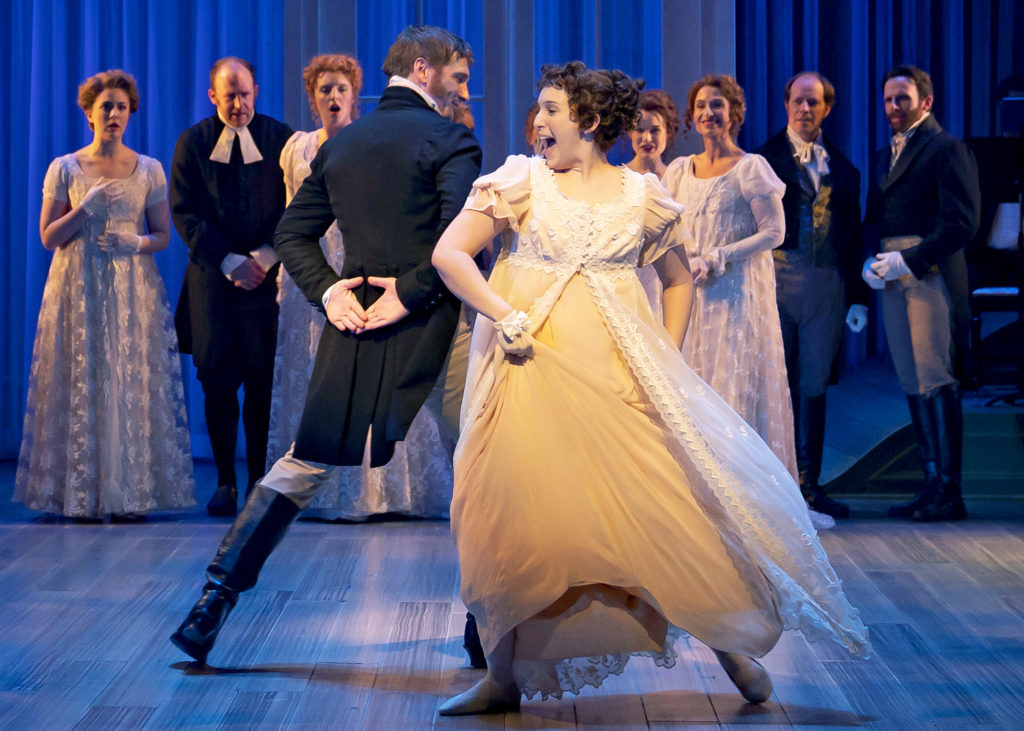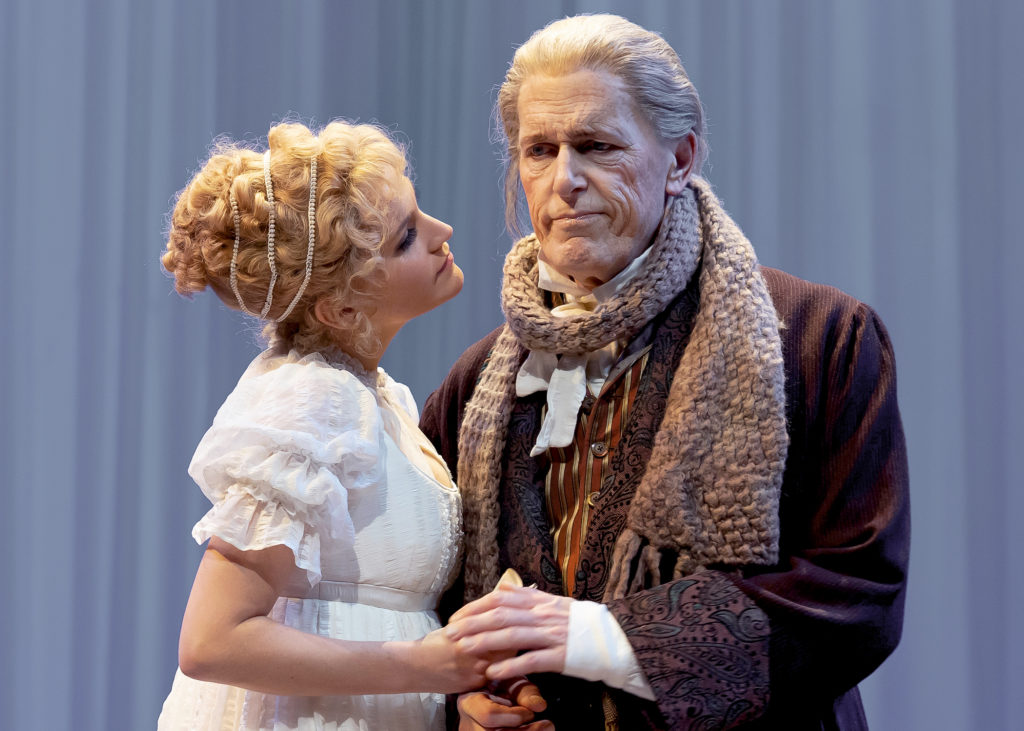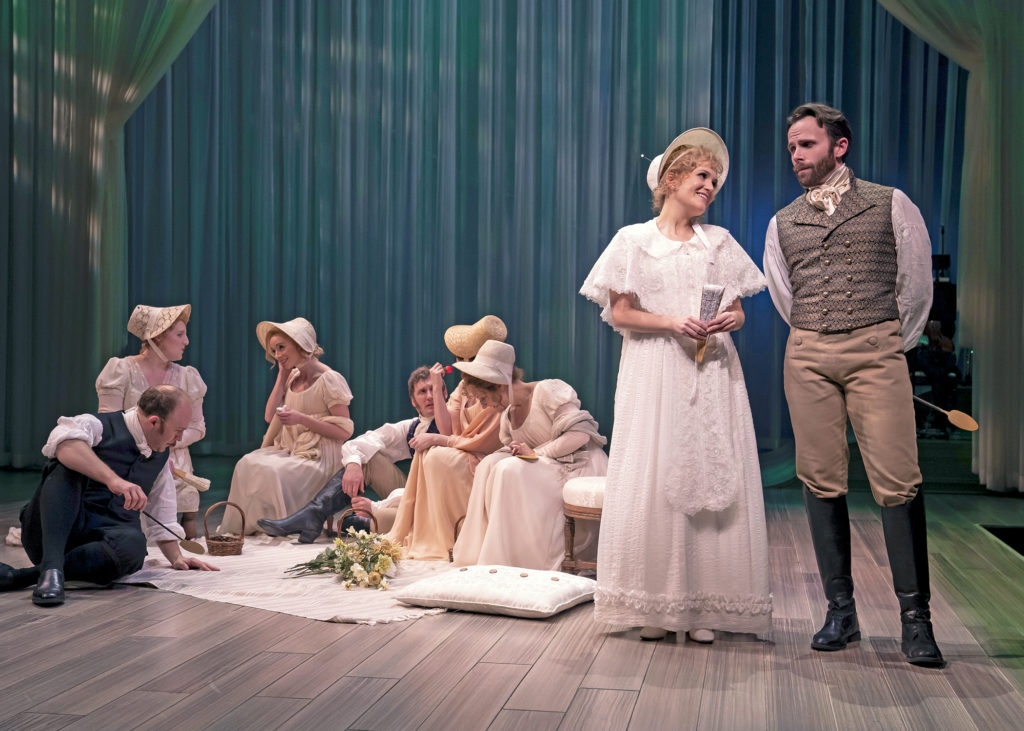EMMA PLOTS, THIS TIME IN SONG
Nobody knew better than Jane Austen how love could get lost in the social maze of Regency England, where social distinctions quickly become psychological barriers. Any successful matrimony required sexual politics and emotional intrigue. There were too many artful simulations of actual affection for the real deal to compete against successfully.
Hard as it is to find love for oneself, 21-year-old Emma Woodhouse, the conditional heroine of Austen’s mistress-piece, doubles the risk by seeking it for others. The follies that follow are immortally illustrated in the 1815 novel, as they were in the updated celluloid spinoff Clueless and the impeccable 1996 film starring Gwyneth Paltrow as a too-certain Emma. The same holds, at least if you know where to look, for Emma, a 2018 musical by Paul Gordon, a prolific composer/bookwriter/lyricist who specializes in proto-feminist novels like Pride and Prejudice, Sense and Sensibility and Jane Eyre.
Now through the Ides of March at Navy Pier in a sympathetic staging by Chicago Shakespeare Theater’s artistic director Barbara Gaines, this musical adaptation presents the arrogant and snobbish title character, her self-deluded matchmaking, and her ultimate lesson in humility and humanity in two dozen serviceable songs.
The canvas for this elaborate mating dance, which features 18 performers and an orchestra of five, could hardly look more sumptuous. It’s beautifully evoked by Scott Davis’ diaphanous curtains and three gorgeous chandeliers suggesting the elegant chambers of Hartfield House. Add to this Mariann Verheyen’s gorgeous and abundant Empire costumes, resplendent finery that’s a time trip in itself (though why all the ladies’ dresses are white seems an illusion of exaggerated innocence). The “Waltz at the Ball” is so much industrial-strength make-believe.
This visual feast almost overshadows the plot, assiduously narrated and crooned by Lora Lee Gayer as the title character. Indulged into an unearned sense of emotional entitlement, Emma never intends to marry’”but will match up her unassuming friend Harriet Smith (demure Ephie Aardema, just as she successfully mated the seemingly incompatible Westons (Michael Milligan and Kelli Harrington).
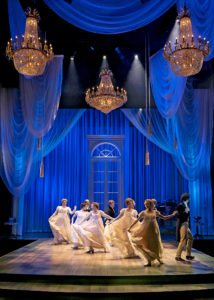 Perversely, Emma industriously discourages Harriet’s natural inclination to the equally stolid Robert Martin (Ian Geers as a stalwart yeoman farmer). Instead, obeying every wrong-headed instinct, our Emma directs Harriet toward snobbish Rev. Philip Elton (Dennis William Grimes). Unaware of Emma’s secret script for his inevitable happiness, Elton rejects dour Harriet to marry the insufferably elitist Mrs. Elton (Bri Sudia in fine flamboyant flourish).
Perversely, Emma industriously discourages Harriet’s natural inclination to the equally stolid Robert Martin (Ian Geers as a stalwart yeoman farmer). Instead, obeying every wrong-headed instinct, our Emma directs Harriet toward snobbish Rev. Philip Elton (Dennis William Grimes). Unaware of Emma’s secret script for his inevitable happiness, Elton rejects dour Harriet to marry the insufferably elitist Mrs. Elton (Bri Sudia in fine flamboyant flourish).
So intent on the meddling she calls matchmaking, Emma is blinded by jealousy, pride and prejudice to her own best prospects: She mistakes the attentions of the suave Frank Churchill (handsome Devin DeSantis) for amorous sincerity. Her narcissism digs a new low at the infamous Box Hill picnic when, envious of agreeable Jane Fairfax (Erica Stephan), Emma gratuitously insults Jane’s poor aunt Miss Bates (the very vulnerable Marya Grandy). For cruelly mocking this chatterbox of a ninny, Emma wins a perfectly deserved dressing down from the man who, aside from Emma’s hypochondriac father (Larry Yando), knows her best and has her greater good in mind.
That, of course, is her childhood companion George Knightley (Brad Standley, morphing from a surrogate (“So brother who is also Emma’s “better angel” to an unexpected soul mate who may be her last chance). So willful at knowing the hearts of others in the hamlet of Highbury, Emma is ignorant’”nay, clueless–of her own future fortune. Only when she can put her self-deception in perspective (“Stranger Things Have Happened”) can Emma discover her “Epiphany” by acknowledging that her conduct has been “Badly Done.”
That moment of truth (“So This Is How Love Feels”), so wonderful in the 1996 film, falls a tad flat in this musical version. The plethora of often ga-ga songs that don’t always carry their own weight and spell things out too much doesn’t help. Gordon’s busy dramatization pursues so many tangents that it neglects to prep us for the absolute rightness of this once and future liaison. We’re not exactly rooting for Emma’s happiness or Knightley’s truth-telling, so manipulative and calculating has she been and so impassive and unengaged has he remained.
Still, the unstoppable magic works its spells effortlessly as ever. The casting is sufficiently close to character and the look is lovely. And this is Jane Austen, the most theatrical novelist ever. That’s fantasy and factuality enough.
photos by Liz Lauren
Emma
Chicago Shakespeare Theater
The Jentes Family Courtyard Theater on Navy Pier, 800 E. Grand Ave.
ends on March 15, 2020
for tickets, call 312.595.5600 or visit Chicago Shakes
for more shows, visit Theatre in Chicago

